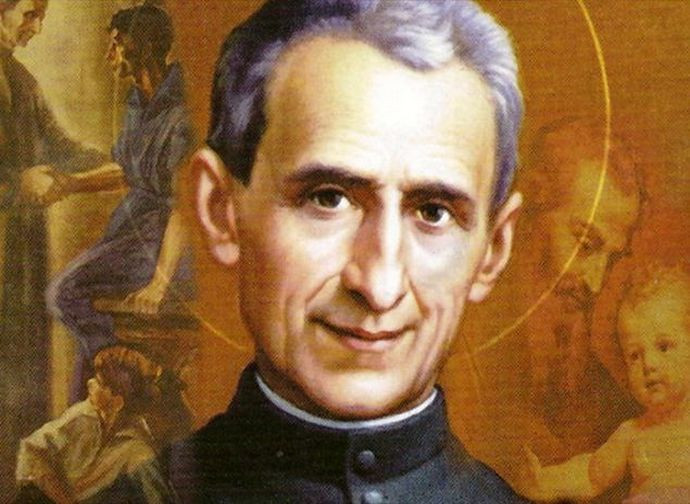Saint Leonard Murialdo
“Do not make religion either solely supernatural or solely human, but supernatural and human. To virtue add goodness, kindness, the spirit of friendship, spontaneity, confidence, cheerfulness ...”. These words of Saint Leonard Murialdo (26 October 1828 - 30 March 1900) describe the whole life of this great priest from Turin, a life of trusting abandonment to Providence and tireless charity towards orphans, young people and labourers.

“Do not make religion either solely supernatural or solely human, but supernatural and human. To virtue add goodness, kindness, the spirit of friendship, spontaneity, confidence, cheerfulness ...”. These words of Saint Leonard Murialdo (26 October 1828 - 30 March 1900) describe the whole life of this great priest from Turin, a life of trusting abandonment to Providence and tireless charity towards orphans, young people and labourers. To help them he promoted an extraordinary series of works and initiatives, as well as providing Christian education.
All this in 19th century Turin where an abundance of saints flourished, one more luminous than the other, despite the strong anticlerical climate. “Turin appears to us, especially in the last century - Paul VI said in 1970, at Murialdo’s canonization - a chosen and blessed City, a City of Saints; think of Don Bosco! Tanto nomini... We think of Cottolengo, of Cafasso, of Dominic Savio, of Maria Mazzarello and of the other shining figures of Christian virtues who from the noble Piedmontese land took roots of holiness”.
Born into a wealthy and large family (there were nine children), Leonard lost his father when he was five. At the age of eight he went to study at the Scolopian College in Savona, where little by little his priestly vocation matured. After his theology studies in his hometown Turin, which he completed after he had also lost his mother, he was ordained on 20 September 1851. In the exercise of his ministry he met Saint John Bosco, who appointed him director of the Oratorio di San Luigi. But he left the most indelible mark of his apostolate in a school founded by Don Giovanni Cocchi (1813-1895), the Collegio Artigianelli. Here the children - mostly abandoned or in dysfunctional families - received a basic education and then, from the age of 12 onwards, they learned the craft of blacksmith, carpenter, bookbinder or printer in the appropriate workshops. Murialdo took over the management of the Artigianelli [Little Artisans] in 1866 and was its soul for the next 34 years, until his earthly death.
Inside the building in Corso Palestro, on 19 March 1873, on the feast of the putative father of Jesus, the saint founded what is now known as the Congregation of Saint Joseph, it too with the aim of educating young people in a Christian way. While Turin was experiencing a galloping industrialisation, with most people not caring about its negative effects, Father Murialdo took an interest in the unemployed and the working class. He did so not according to the subversive vision of socialism but from a Catholic perspective (which in 1891 would be admirably defined in Leo XIII's Rerum Novarum), aimed above all at removing the causes of social conflict and obtaining decent working conditions. To this end he strove to reduce the working day to eight hours and to guarantee rest on public holidays. His impetus generated the Catholic Workers' Union of Turin (1871), an employment office, agricultural colonies, technical-practical agricultural schools, a mutual aid fund, evening catechisms, family homes for young workers, etc.
Before being a man of action, Saint Leonard Murialdo was a man of prayer, sure that “the man who prays is the most powerful in the world”. He said that “prayer is man's soul and strength. Let it be done with humility, confidence, and perseverance”. Thanks to this trust in God and in the intercession of Our Lady, to whom he was very devoted, the priest was able to overcome the economic difficulties linked to his many works (his very numerous epistles, which consist today of 2,379 letters found and published, give an account of this). He had experienced Divine Mercy since the years of his youthful crisis (as he recalled in his Spiritual Testament). Therefore he taught to let oneself be loved by Him. He spoke of “three miracles of God's love. The Crib with the Child Jesus: it teaches us humility, poverty, resignation. Calvary with Jesus Crucified: it teaches the great truths of God's love for men and men's love for God. Jesus in the Sacrament of the Eucharist: it is the perfection of love; Jesus comes to us, He loves us, He joins us”.
Read more:
Writings
